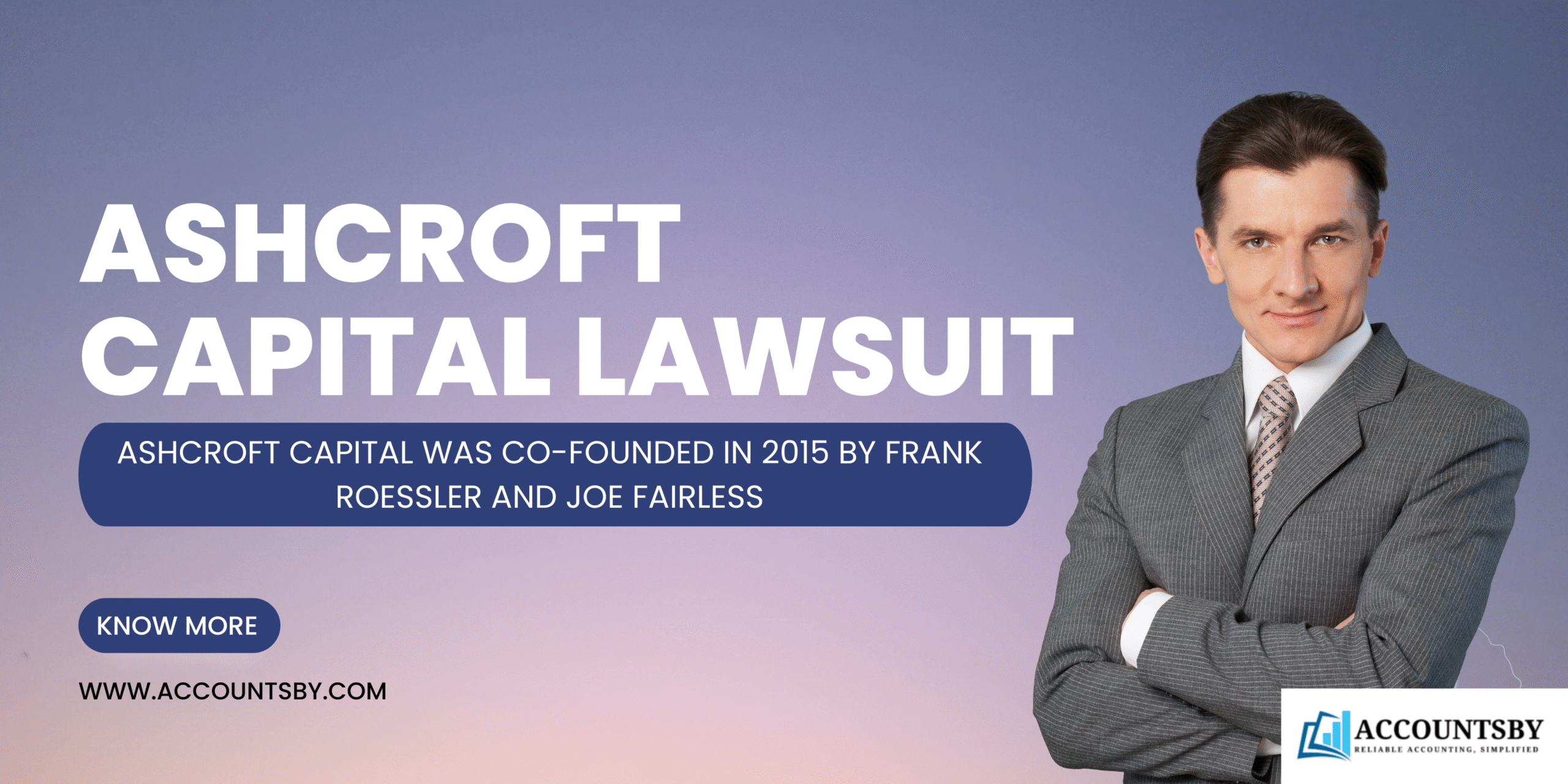The Ashcroft Capital lawsuit has garnered significant attention since it emerged in early 2023. Ashcroft Capital, a Texas-based real estate investment firm, has found itself at the center of legal controversies that have shaken investor confidence. This lawsuit involves serious allegations such as breach of fiduciary duty, financial misrepresentation, and lack of transparency. These claims have raised questions about the practices of private equity firms in the real estate sector.
In this article, we’ll explore the Ashcroft Capital lawsuit in detail, discussing its key allegations, the potential impact on the real estate industry, and what this means for investors.
What is Ashcroft Capital?
Ashcroft Capital was co-founded in 2015 by Frank Roessler and Joe Fairless. Based in Texas, the firm focuses on acquiring and managing multifamily real estate properties in the Sun Belt region of the United States. Ashcroft Capital is known for its expertise in construction, asset management, and property management.
The firm has built a reputation for its apartment syndications and real estate investments, which have attracted many individual and institutional investors. However, the company’s legal troubles have recently cast doubt on its reliability.
What is the Ashcroft Capital Lawsuit About?
The Ashcroft Capital lawsuit revolves around allegations made by investors who claim they were misled about the expected returns on their investments. The investors argue that the firm inflated the potential financial outcomes of certain real estate deals, resulting in significant losses.
The lawsuit covers several important allegations:
- Breach of Fiduciary Duty
- Misrepresentation of Investment Returns
- Failure to Disclose Risks
- Unjust Enrichment
These allegations have raised serious concerns about the firm’s practices and whether they acted in the best interest of their investors.
Also Read: 5starsstocks .com: Your Ultimate Guide to Stock Trading and Investment Insights
What Are the Key Allegations in the Ashcroft Capital Lawsuit?
1. Breach of Fiduciary Duty
The primary allegation in the lawsuit is that Ashcroft Capital failed to act in the best interest of its investors. A fiduciary duty requires companies to prioritize the financial well-being of their clients over their own interests. The plaintiffs argue that Ashcroft Capital mismanaged funds, failed to disclose risks, and made decisions that benefited the firm at the expense of investors.
2. Financial Misrepresentation
Investors claim that Ashcroft Capital misrepresented the financial performance of certain real estate investments. The company allegedly projected high returns that did not materialize, leading to unexpected losses. According to the lawsuit, investors were not fully informed about the potential risks associated with these properties.
3. Lack of Transparency
Another significant claim is that Ashcroft Capital did not provide enough transparency about the risks and challenges associated with its projects. Investors argue that they were not given full access to crucial financial details, which would have influenced their decisions.
4. Unjust Enrichment
The investors also argue that Ashcroft Capital unfairly benefited from its actions by unjust enrichment. This means that the company allegedly profited from misleading investors without providing fair compensation or returns. Essentially, they claim that Ashcroft Capital took advantage of investors’ trust and caused them to suffer financial losses.
Who Are the Parties Involved in the Ashcroft Capital Lawsuit?
1. Ashcroft Capital: The Defendant
Ashcroft Capital is the defendant in this case. The company has denied all allegations and maintains that it followed industry standards when managing its investment properties. The firm’s legal team is working to defend its reputation and prove that it acted in accordance with all relevant regulations.
2. The Plaintiffs: Investors Seeking Compensation
The plaintiffs are a group of investors who claim to have suffered significant financial losses due to Ashcroft Capital’s alleged mismanagement. These investors are seeking compensation for the losses they incurred and want to hold the firm accountable for its actions.
What Are the Legal Implications of the Ashcroft Capital Lawsuit?
The outcome of the Ashcroft Capital lawsuit could have far-reaching consequences for the real estate investment industry. If Ashcroft Capital is found guilty, it could lead to:
- Stricter regulations for private equity firms and real estate investment companies.
- Increased investor protection measures.
- A shift in industry standards, where firms are required to be more transparent and honest about the risks involved in their projects.
How Could the Lawsuit Affect the Real Estate Market?
The Ashcroft Capital lawsuit has the potential to affect investor confidence in the real estate market, especially among private equity firms. If the case results in a ruling against Ashcroft Capital, it could:
- Reduce trust in real estate syndications and investment opportunities.
- Lead to more cautious investing, where investors demand more transparency and thorough risk disclosures before committing capital.
- Trigger more lawsuits within the private equity and real estate sectors, as investors seek to hold firms accountable for misrepresentation.
What Happens Next in the Ashcroft Capital Lawsuit?
The lawsuit is still ongoing, and the legal teams representing both parties will continue to argue their cases in court. While it’s impossible to predict the final outcome, the case is likely to set important precedents regarding how real estate firms communicate with investors and manage their fiduciary duties.
For investors, the key takeaway is the importance of due diligence. It’s essential to thoroughly vet any real estate investment opportunity and ensure full transparency about projected returns and risks.
Also Read: Travel Allowance: Everything You Need to Know for 2025
Conclusion: What Does the Ashcroft Capital Lawsuit Mean for Investors?
The Ashcroft Capital lawsuit highlights the risks involved in private equity and real estate investing. Investors who are considering opportunities in this space should be aware of the potential legal and financial risks, especially if a firm has a history of legal controversies or lack of transparency.
As the case continues to unfold, the real estate industry will be watching closely to see how the courts handle the allegations. The outcome could lead to significant changes in regulations, investor protections, and the way firms operate in the future.
For now, it serves as a reminder to investors to always perform thorough research and consider the risks associated with any investment—especially in the complex world of real estate syndications and private equity deals.
Frequently Asked Questions (FAQs) About the Ashcroft Capital Lawsuit
The Ashcroft Capital lawsuit involves allegations that the company misled investors about potential returns and failed to disclose key risks, leading to significant financial losses.
Ashcroft Capital (defendant) is accused of financial misrepresentation.
The Plaintiffs are investors seeking compensation for their losses.
Breach of fiduciary duty
Misrepresentation of returns
Lack of transparency
Unjust enrichment




